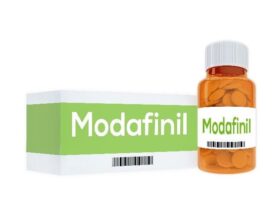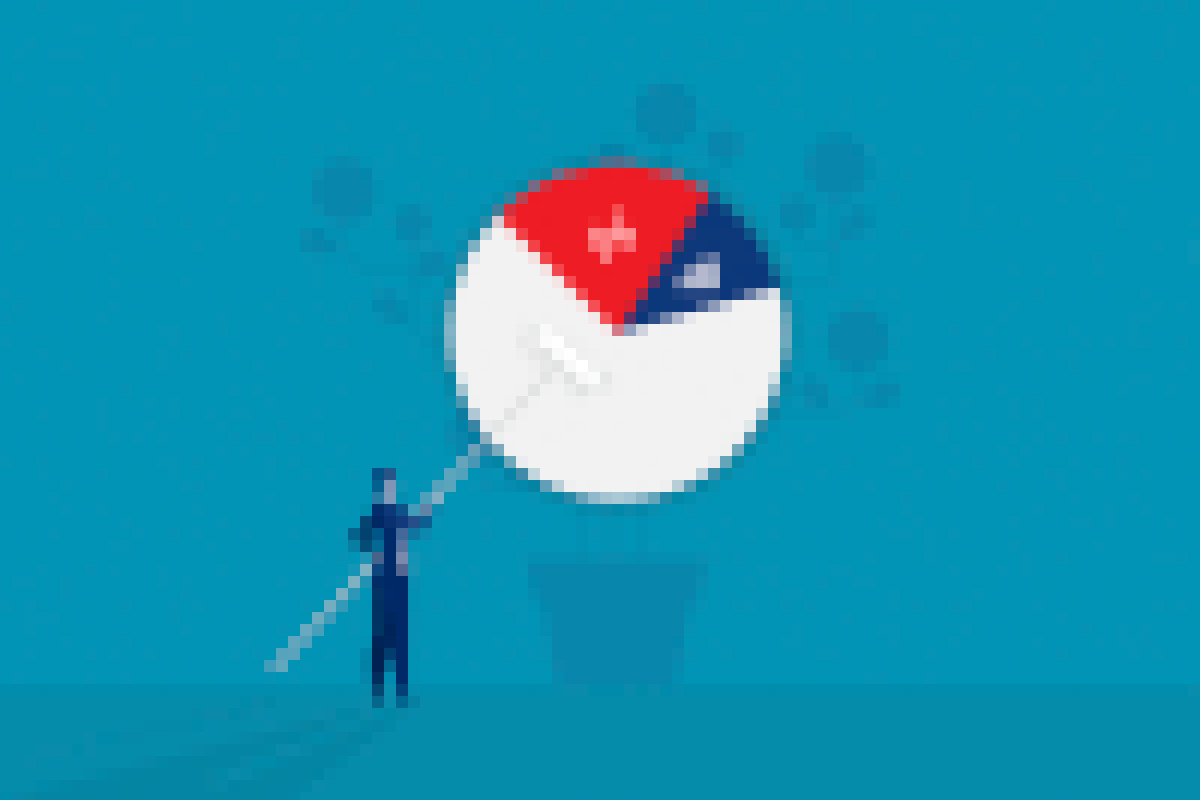No products in the cart.
Modafinil in Reviews: What Nootropic Enthusiasts Say
Modafinil. It’s not just a pill—it’s a revolution in focus. Coders in Silicon Valley, entrepreneurs sealing game-changing deals, everyday rebels chasing clarity—they all swear by it. Their stories echo: razor-sharp thinking, unstoppable drive, moments of brilliance that redefine what you can achieve. Science confirms it: real studies prove that the nootropic works in the brain to enhance wakefulness, concentration, and mental endurance. It's a low-risk, high-reward drug that gives a smarter edge to healthy people who dare to think differently.
Quick Take
Modafinil shines as the top “smart drug,” blending unmatched effectiveness with safety. Backed by years of research and thousands of user reviews on Reddit and beyond, it supercharges focus, motivation, and productivity, outpacing riskier stimulants like Adderall.
- Users love modafinil for its potent boost to alertness and reasoning, with minimal jitters, crashes, or addiction risks, making it the “king of nootropics.”
- From students to pros, it powers long study or work sessions, turning dull tasks into manageable ones with laser-like focus and stamina.
- It’s not a cure-all—long-term effects are unclear. Stick to recommended doses, avoid using it to skip sleep, and watch for rare side effects like allergies or mood shifts.
The information provided in this post is for general informational and educational purposes only and should not be considered professional medical advice. Always consult with a qualified healthcare professional before making any changes to your diet, medication, or exercise routine.
⚠️ Note Before You Begin
This guide provides an in-depth overview of modafinil, combining scientific research with real user experiences from platforms like Reddit. For those specifically looking for reputable online vendors, the guide highlights two established options—ModafinilXL and ModafinilCat—both known for reliable shipping, customer support, discreet delivery, and buyer protections such as refunds or reshipments, along with regular discounts.
When used appropriately, modafinil “improves attention, learning, and memory” in healthy people. It won’t make someone instantly genius – research notes mixed results at very high doses – but in moderate doses (100–200 mg) it reliably enhances focus and higher-order thinking. In practical terms, this means tasks like writing reports, studying, coding, or analyzing data often feel easier and more engaging.
What Is Modafinil?
Modafinil is a prescription wakefulness‐promoting agent (brand name Provigil) originally developed to treat narcolepsy (uncontrollable daytime sleepiness) and other sleep disorders. It was FDA‐approved in 1998 for narcolepsy and later (2003) for shift-work sleep disorder and sleep apnea.
It is chemically distinct from amphetamines and has lower addictive potential than classic stimulants. In practice, many doctors prescribe modafinil off-label for conditions like ADHD, fatigue, and depression because of its stimulating effects.
Biologically, modafinil’s precise mechanism is still unclear, but it appears to elevate extracellular dopamine and norepinephrine and to stimulate brain “wakefulness” systems (especially the orexin/hypocretin neurons in the hypothalamus) without causing the overt euphoria of amphetamines.
In short, modafinil increases alertness by boosting brain signals for wakefulness, making users feel energetic and focused without the jittery side effects typical of caffeine or Adderall.
Because of these effects, modafinil is widely used off-label as a “nootropic” or “smart drug.” A systematic review of the literature confirms that modafinil can enhance certain cognitive functions in healthy adults: for example, planning and decision-making improved significantly, even though simple memory tasks showed no effect.
Indeed, Oxford researchers concluded that in non-sleep-deprived subjects, modafinil “did improve decision-making and planning,” and side effects in those controlled trials were “vanishingly few” (mostly mild insomnia, headache, or nausea, similar to placebo). This corroborates user experiences: many individuals report sharper thinking and better concentration under modafinil.
Research reviews have even dubbed modafinil “the world’s first safe ‘smart drug,’ noting improvements in decision-making, planning, and fluid intelligence with only mild side effects.
Users take modafinil and similar enhancers to stay alert for longer periods and improve concentration. In practice, modafinil provides a cleaner, longer-lasting focus boost compared to caffeine or other stimulants. It has been tested by students cramming for exams, professionals facing all-night work sessions, and even the military for “battle fatigue.”
Below, we survey modafinil’s official uses, known cognitive benefits, and extensive user experiences to give a comprehensive overview of this so-called “king of nootropics.”
The discussion combines published studies and firsthand reviews to explain what modafinil is, how it works, what cognitive perks it offers, and what real users report.
Modafinil is a wakefulness-promoting agent (sometimes called a “eugeroic”) that differs from classic stimulants (amphetamines, methylphenidate). It was first approved in the 1990s for narcolepsy – a sleep disorder marked by excessive daytime sleepiness – and later for shift-work sleep disorder and as an adjunct for sleep apnea.
Key characteristics of modafinil include:
- wakefulness drug (eugeroic): Modafinil heightens alertness without the strong “rush” or crash of amphetamines. Researchers note its profile is “notably different” from amphetamine or cocaine: it causes far less anxiety, jitteriness, or locomotor hyperactivity;
- FDA-approved uses: Treats narcolepsy (prevents uncontrollable sleep attacks), shift-work sleep disorder, and excessive sleepiness in obstructive sleep apnea. It is not approved for ADHD or cognitive enhancement, but physicians sometimes prescribe it off-label;
- off-label uses: Many take modafinil for ADHD symptoms, depression-related fatigue, and other conditions. Clinicians have also tried it for multiple sclerosis fatigue, cocaine dependence, and cognitive impairment in psychiatric disorders. In healthy people, it is commonly used off-label to boost concentration, learning, and work performance;
- mechanism of action: The exact mechanism isn’t fully understood, but modafinil weakly inhibits dopamine reuptake and increases levels of histamine, norepinephrine, and orexin in the brain [6]. This produces sustained wakefulness and attention without the large dopamine surges that make amphetamines so addictive. Importantly, modafinil’s half-life is long (about 12–15 hours), so a dose keeps you alert throughout a day or night;
- addiction/tolerance profile: Modafinil has low abuse potential. It does not appear to cause classic stimulant cravings or tolerance. As a review notes, modafinil “does not seem to accompany any side effects” typical of traditional stimulants [6]. In practice, many users report that years of routine modafinil use have not led them to need higher doses;
- legal status: In the US, modafinil is Schedule IV (prescription-only). It’s controlled or prescription-only in most countries. However, the online market thrives – modafinil pills are often imported from India or Mexico by individuals seeking cognitive enhancement. (E.g., some Reddit users mention obtaining generic modafinil from nearby countries [8].
In summary, modafinil is a prescription stimulant with unique properties: it powerfully promotes wakefulness and focus, yet is considered quite safe and non-addictive when used properly.
Mechanisms of Action
Modafinil’s pharmacology is complex. Unlike classical stimulants, it has little direct activity on serotonin or norepinephrine transporters, but it does raise dopamine levels by blocking dopamine reuptake.
This dopamine increase helps explain the alerting effect, but because modafinil interacts differently with the dopamine transporter than cocaine or amphetamines, users typically do not experience a rush or euphoria.
Simultaneously, modafinil influences other systems: it appears to activate orexin (hypocretin) neurons in the hypothalamus, which are key for stabilizing wakefulness. In practical terms, these mechanisms combine to make a person feel awake, focused, and motivated.
For instance, one user described modafinil as “a gentle wakefulness agent” that noticeably increased their alertness and concentration without causing the speediness of amphetamines. Another noted, “Massively increases focus and concentration… boring repetitive tasks become fun” – reflecting that underlying neurochemical boost in focus and motivation.
Pharmacokinetically, modafinil has a long half-life, meaning its effects can last throughout the day. It is taken once daily (usually in the morning) so that the cognitive and wakefulness benefits persist into the afternoon.
Food only slows its absorption slightly without affecting overall exposure. Because of this long duration, modafinil can sometimes cause difficulty sleeping if taken too late in the day; many users learn to dose early to prevent insomnia.
Cognitive and Nootropic Benefits
The tip is that modafinil reliably reduces fatigue and increases alertness, and can enhance certain higher-level mental functions [7] [4] [3].
Key findings include:
- improved complex cognition: A 2015 systematic review found that modafinil significantly enhances decision-making, planning, and problem-solving in healthy, non-sleep-deprived subjects. Effects were most pronounced on tasks that involved complex reasoning or multi-step decisions, rather than simple memory tests. As reported in The Guardian, “the longer and more complex the task, the more consistently modafinil conferred cognitive benefits.” In short, modafinil helps you think clearly under pressure.
- enhanced attention and focus: Numerous studies and user reports agree that modafinil sharpens sustained attention. Subjects often show improved reaction time and fewer attentional lapses after dosing. In one controlled trial, healthy adults taking 200 mg of modafinil showed better performance on continuous-attention tasks than those taking a placebo. Users describe this as an ability to “lock in” on work for hours.
- working memory and learning: The evidence is mixed, but several trials indicate modest improvements in working memory and learning. For example, modafinil improved performance on certain memory tests in depressed patients and enhanced learning in fatigued individuals. It also appears to increase “fluid intelligence” (problem-solving ability) on some measures. However, reviews note that memory/muscle improvements are not as universal as attention gains.
- motivation and mood: By promoting dopamine and histamine, modafinil often produces a mild euphoria or uplift. Many users feel more optimistic, and studies suggest a “mood-brightening” effect. Anxiety or distractibility typically decreases, unlike the jittery anxiety sometimes caused by amphetamines. In fact, one review reports virtually no effect of modafinil on mood in healthy people – it mainly boosts cognition without making you hyper.
- fatigue reduction: Unsurprisingly, modafinil is a powerful anti-fatigue agent. In trials with shift workers or sleep-deprived individuals, subjects stayed awake and alert much longer under modafinil than without. Even in clinical contexts (e.g., cancer patients on chemotherapy), modafinil eases fatigue and improves cognitive function.
- no “crash”: Unlike caffeine or classic stimulants, modafinil’s effects taper off smoothly as it wears off, with less rebound fatigue or sleepiness. Users often report feeling normal rather than crashing hard at the end of the day.
When used appropriately, modafinil “improves attention, learning, and memory” in healthy people. It won’t make someone instantly genius – research notes mixed results at very high doses – but in moderate doses (100–200 mg) it reliably enhances focus and higher-order thinking. In practical terms, this means tasks like writing reports, studying, coding, or analyzing data often feel easier and more engaging.
What Do Users Say About Modafinil?
Anecdotes from nootropic enthusiasts abound. Online forums such as Reddit are filled with personal reports on how modafinil affects daily life. While individual experiences vary, common themes emerge: increased focus, greater mental clarity, and sometimes surprising side effects.
User accounts consistently praise modafinil’s effects on thinking and productivity. Across forums and review sites, people describe feeling “clear-headed, focused, [and] motivated” during their work or study sessions [10]. For example, one LongeCity forum user reported that modafinil “allows me to focus on a task without getting distracted” and that she feels “energised, focused, clear-headed, motivated.”
Similarly, on Reddit, a doctor (annabellareddit) wrote that modafinil made her feel “awake but not sped up” and that she “notice[s] an increase in alertness & function (around focus & concentration, which increases my productivity) [13].” These accounts highlight that modafinil sharpens attention.
Academically, in well-rested adults, modafinil “did improve decision-making and planning” while it had little effect on simpler memory tasks. In other words, it seems most potent on complex, “higher-order” cognitive tasks that involve sustained attention, planning, or problem-solving. In contrast, basic working memory or verbal fluency did not consistently improve. This matches what many users describe: it doesn’t make you smarter in the genius sense, but it turns “boring repetitive tasks [into] fun” and helps maintain performance on mentally taxing work [14].
On forums and review sites, numerous people report practical outcomes. One user taking modafinil to combat chronic fatigue said, “It’s a miracle for me. I have taken this for 10 years and can’t function without it”, rating it 10/10 [15]. Another (a former combat medic) wrote that “Modafinil actually WORKED!” for his severe fatigue and that “It has made a big difference.” Even casual or occasional users notice benefits: a teacher who tried 50 mg of modafinil reported being “very productive,” managing chores and admin work he normally avoids [13].
The cumulative theme is strong: in hundreds of personal reports, the overwhelming sentiment is that modafinil reliably increases wakeful performance. One Reddit commenter sums it up: “No side effects at all. Just contentment and a willingness to move… Excellent drug”[10]. (Of course, this is an individual’s view, but it echoes dozens of similar comments.)
Another key benefit users mention is motivation and mood. Many note that modafinil not only increases focus but also makes work feel more engaging. The LongeCity user mentioned above said she could do paperwork for an hour straight (whereas normally she would lose interest after 15 minutes). Likewise, “motivation to complete tasks” was notably “boosted”, causing procrastination to drop off.
One person simply said, “Love it for motivation, focus, energy, appetite suppression [15].” These words underscore that modafinil often brings a sense of drive. Indeed, modafinil is sometimes colloquially called a “work drug” because users feel able to stay on tasks longer and start projects they would otherwise delay.
This motivational lift can even spill into personal life. EvaWhite’s post described feeling socially anxious normally, but on modafinil, she had “reduced inhibitions”, engaged more confidently in conversation, and even performed well in a job interview (remaining calm and witty) [9]. She attributed her “edge” in that interview to modafinil.
Similarly, in a Reddit sleep-disorder community, one user said modafinil kept him from nodding off at his desk or while driving and let him clean his entire house in one day — chores that normally took him multiple days due to sleepiness [18].
Many women and men, including schoolteachers and military veterans, have posted that they suddenly felt like a “normal person” with normal energy after modafinil: one woman wrote that within 30 minutes of dosing, she went from dragging herself on the couch to “up, getting ready, and planning something fun with my kids… It made me feel like a normal person, with normal energy [18].”
These first-person accounts all point to a strong, consistent enhancement of alertness, wakefulness, and task drive.
What’s More?
Here are some representative quotes from forum users (with citations to the source thread):
- “I 100% believe it makes you smarter. Massively increases focus and concentration on things… boring repetitive tasks become fun. Makes learning things different and fun [12].” – (Reddit user describing years of daily modafinil use; note: even the user cautions about headaches and sleep timing).
- “Extreme focus. Wakefulness that does not race the heart. Anxiety reduced to almost zero. Rapid fire when I’m presenting stuff. I can tolerate negative people and events by A LOT when I’ve taken modafinil [12].” – (Another daily user noting insomnia if taken too late, and that he tends to overuse it).
- “Modafinil is the closest thing to Adderall there is that you can get over the counter… Some think of modafinil as a cleaner, less jittery caffeine high that lasts a lot longer (4 hours or so)… Some first-time users report an almost cocaine-like feeling [21].”
- “Caffeine is the closest second [to modafinil], but still very average at best compared to moda… All ‘herbal brain boosters’ are a scam imo. Piracetam is not worth it for [me; I had] to consume a ton for minimal results [12].”
- “I tried modafinil. It sucks [21].” – (A dissenting voice in a Reddit thread, reminding us that not every user loves it.)
In summary, most user reviews echo that modafinil profoundly sharpens concentration and productivity. Commonly reported benefits include feeling “wide awake but not wired”, tackling long or dull tasks easily, and even improved tolerance for stress or negativity under workload.
Some users specifically note more effective learning and problem-solving. These anecdotal reports align well with the scientific findings above. However, users also note caveats: it can disrupt sleep if taken too late, and some people (especially migraine sufferers or those prone to anxiety) must use it cautiously.
In practice, the anecdotal evidence strongly favors modafinil as a performance aid. Across Reddit, specialized forums, and personal blogs, the vast majority of first‐hand accounts are glowing. Users consistently report heightened focus, clearer thinking, and a powerful boost in productivity. Phrases like “life-changing”, “sharp and energetic”, and “no side effects… excellent drug” appear repeatedly.
People appreciate that modafinil feels like normal alertness – as if a light switch is turned on in the brain. Tasks they would usually avoid suddenly seem manageable or even interesting. Many note extra confidence and sociability (e.g., being able to speak up in meetings or interviews). In short, modafinil “gives [them] the edge” in work or study.
Of course, real experiences vary. A small number of users find it ineffective or report unpleasant effects (for example, one user bluntly called it “absolute dog shit” with anxiety and tremor). But these are a minority. Many users even take pride in the fact that modafinil doesn’t feel like a drug at all: “I don’t feel sped up like Adderall,” just more capable and willing to move.
Connected Scientific Evidence
In addition to anecdotes, some rigorous studies back up modafinil’s reputation. The 2015 Oxford review mentioned above concluded that modafinil qualifies as a genuine cognitive enhancer (“first well-validated pharmaceutical nootropic”) for healthy adults.
Other trials have shown that modafinil can improve reaction time, working memory under fatigue, and planning ability in non-sleep-deprived subjects. For example, volunteers given modafinil in controlled experiments often outperform a placebo on complex tasks like multi-hour problem-solving or learning tests. Head-to-head, it tends to enhance endurance on cognitive tests rather than speed – so users report lasting stamina in focus (which matches those repetitive-task anecdotes).
On alertness, clinical studies (mostly in narcolepsy) consistently show that modafinil reduces daytime sleepiness with minimal jitter. People with hypersomnia or sleep apnea report being more alert and productive.
Even in some ADHD trials, modafinil improved attention scores (though its use in ADHD is off-label). In contrast to amphetamines, modafinil usually does not raise blood pressure or heart rate significantly, and it has a milder psychological profile.
In summary, the science aligns well with user reports: modafinil elevates alertness, enhances certain executive functions, and does so with mostly mild side effects. It can “be considered a cognitive enhancer” according to experts.
At the same time, both studies and users emphasize caution: it isn’t a super‐drug that eliminates fatigue indefinitely. Moderate dosing and self-monitoring (of sleep and mood) are prudent. Ethical use (and watchfulness for side effects) is an important part of modafinil’s use as a brain enhancer.
How Modafinil Compares to Other Nootropics
Enthusiasts often compare modafinil to other cognitive enhancers:
- Amphetamines (Adderall, Ritalin): Like Adderall, modafinil increases dopamine to boost focus. But modafinil’s profile is gentler. It causes far less jitteriness, anxiety, or dopamine “rush,” and carries a much lower risk of addiction. Indeed, some describe modafinil as the best non-amphetamine focus drug available. It won’t produce the same euphoric rush or tolerance build-up as Adderall, yet it still improves focus for many users.
- Caffeine: Caffeine is the most common everyday stimulant. Compared to caffeine, modafinil lasts much longer (up to 12+ hours) without the frequent crashes or jitter. Many say modafinil feels like a “cleaner, less jittery caffeine high.” Unlike coffee, its effects endure through an entire day (or late-night) without the need for constant re-dosing. In short, if caffeine is the “starter” stimulant, modafinil is a far more potent pro version.
- Racetams and Herbal Nootropics: Older nootropics like piracetam or common supplements (L-theanine, bacopa, etc.) generally have much subtler effects. As one user noted, modafinil blows them out of the water: “All ‘herbal brain boosters’ are a scam… Piracetam… had to consume a ton for minimal results.” In practice, people say modafinil simply produces a more tangible, immediate cognitive boost. It is often called the “king of nootropics” because of its reliable potency. (Note: The phrase “king of nootropics” comes from user/marketing sources, reflecting popular sentiment.)
- Newer “smart drugs” (microdosed psychedelics, etc.): These have their own fan bases, but modafinil is unique as a legal, prescription stimulant that is well-studied. Unlike unregulated supplements or experimental compounds, modafinil’s effects and safety profile are relatively well-documented.
Overall, modafinil occupies a special niche: it is often considered stronger than most OTC supplements or caffeine, but smoother and safer than classical stimulants. This reputation makes it a go-to choice for those seeking maximum cognitive enhancement with minimal drawbacks.
Side Effects and Safety
No drug is entirely without side effects, and user experiences (and drug references) note some common downsides of modafinil. Clinical data identify the most common side effects as headache, nausea, nervousness/anxiety, and trouble sleeping.
These are generally mild: the Oxford review noted only a few cases of insomnia or headache among dozens of studies. Serious adverse effects (like cardiac or psychiatric complications) are rare.
In practice, users mention a few recurring issues. Dehydration is one: people say they drink water constantly, since modafinil suppresses thirst and sweat. One long-term user listed sweating under arms, a cold feeling, and dehydration unless constantly hydrating [13].
Headaches at high doses are also common: for example, EvaWhite noted that taking modafinil more than twice a week gave her “mild headaches and difficulty sleeping.” In fact, she tailored her dosing schedule (only twice weekly) specifically to avoid those side effects.
Difficulty sleeping is frequently mentioned: another LongeCity commenter admitted that even 12 hours after dosing, modafinil “can wreck your sleep”, requiring special sleep hygiene. A Redditor reported it took a few days after quitting to have a normal sleep-wake cycle again. Gastrointestinal effects occur in some: one Reddit commenter said modafinil “gave me diarrhea so I stopped taking it.” And appetite suppression is noted (one said it curbed hunger significantly).
Despite these, many users find side effects tolerable. Some even report no side effects at all: as one Reddit user remarked, “No side effects at all. Just contentment and a willingness to move… Excellent drug.”
Often, side effects are minimized by adjusting dose: EvaWhite found 200 mg gave too much jitteriness and insomnia, but 100 mg was a “sweet spot” that delivered focus “without being overwhelming.” Similarly, adding hydration or taking it only on needed days helps mitigate downsides.
Modafinil slightly raises heart rate and blood pressure, but much less so than amphetamines. People with heart disease or uncontrolled hypertension should use caution. Psychiatrically, modafinil is usually calming rather than stimulating, but rare reports of mania or hallucinations exist at very high doses.
Modafinil may harm a fetus and is contraindicated in pregnancy. Women who are pregnant or nursing should avoid it. Similarly, those under 18 are generally advised against using it, since the young brain is still developing.
It’s worth noting that in formal trials, adverse effects were low and modest (mostly headache and mild insomnia). In short, users praise the energy gains and describe side effects as “minimal compared to amphetamines or other meds,” though the occasional headache or inability to sleep is the price of all-day alertness.
Long-Term Use and Tolerance
Many people wonder if modafinil remains effective with prolonged use or if the body builds tolerance. Generally, modafinil has a lower tolerance profile than classic stimulants. Clinical guidelines suggest it “does not typically lead to drug tolerance” in narcolepsy patients, meaning one doesn’t usually need to keep increasing the dose to stay effective. Even so, some reports caution that rare individuals may develop reduced effects over the years, requiring higher doses.
Users have various strategies. For example, one long-term user (again EvaWhite) intentionally limited her use to 2 days per week “to avoid building a tolerance.” She found this schedule (with 100–200 mg doses on Monday and Thursday) maintained her focus without headaches or sleep trouble.
Another reported taking periodic “holidays” from modafinil for the same reason. If anything, these anecdotes imply that daily dosing might demand vigilance for tolerance or sleep disruption. Indeed, one user who’d used modafinil for a decade said he “can’t function without it” – suggesting his body expects the drug, though he didn’t explicitly note tolerance.
On the other hand, many users (and studies) indicate long-term effects remain stable if used sensibly. As one Reddit commenter put it, “Insurance oddly gives pushback… but it’s usually like $20… I take it for a chronic condition… I can function well. No withdrawal when I don’t need to take it. It’s a very good drug.” This implies he did not feel dependent or tolerant. It’s reassuring that official reviews do not highlight severe dependence or escalating doses as common. The GoodRx guide notes that modafinil has a relatively low risk of addiction or misuse.
If tolerance does develop, users say it tends to happen slowly. Wikipedia notes that only “in rare cases” might patients need higher doses for the same effect. Another user, after years of daily use, started experiencing more fatigue and anxiety – suggesting maybe a “reset” was needed (an example of a cautionary tale).
In practice, experienced users often cycle modafinil or take lighter doses now and then. For instance, taking 100 mg instead of 200 mg produced a strong “sweet spot” of alertness without over-stimulation for EvaWhite.
Overall, the consensus seems to be that long-term modafinil use can remain effective, especially if used judiciously. Many users report continuing benefits for years with no fading of the cognitive boost. One such user simply said, “No side effects at all… Excellent drug,” even after chronic use.
Another reported taking it for “10 years or more”, still reliant on it daily with the same effect as before. In other words, while vigilance is wise (avoiding nightly use and not exceeding recommended doses), modafinil’s wakefulness and cognitive effects generally persist long-term in committed users.
Legal Status and Ethical Considerations
Modafinil’s popularity has prompted discussion beyond the lab or user forums. Some key points:
- Legal Control: In the US and many countries, modafinil is prescription-only. It is classified as a Schedule IV (low abuse potential) controlled substance in the US. However, demand for cognitive enhancement means many obtain it without a prescription, especially online. For example, one Reddit user mentioned sourcing it from Mexico.
- Academic and Workplace “Doping”: As more students and professionals use modafinil, questions arise about fairness and pressure. Is taking modafinil for an exam or high-stakes job performance akin to doping? Experts are debating this.European psychiatrists noted that since modafinil “improves human performance in the absence of impairment”, it brings up a genuine ethical debate. Colleges and companies have no clear rules yet; it often falls into a gray area.
- Medical vs Enhancement Use: Drug regulators have no precedent for licensing a drug purely for cognitive enhancement. Thus, pharmaceutical companies are not seeking approval of modafinil for study aids. This means people seeking cognitive benefits rely on off-label use. Public debate may eventually decide if cognitive enhancers should be more regulated or even permitted in some contexts.
- Safe Use Guidelines: Advocates emphasize that when used responsibly (e.g., not daily, proper dosing, avoiding sleep deprivation), modafinil can be part of a healthy cognitive regimen. Critics warn that it should not replace healthy habits (sleep, diet, exercise) and that societal pressures should not push everyone toward pills for productivity.
In summary, modafinil occupies new territory: a medical drug being repurposed by healthy people. Regulations, norms, and ethical views are still catching up to this trend. For now, it remains a legal prescription medication, but with a flourishing informal market and a lively online community sharing tips.
Conclusion
Both research and user experience suggest that modafinil is a powerful cognitive enhancer when used properly. It reliably sharpens focus, alertness, and executive function, effectively giving many people an edge in demanding mental tasks. That said, it should be approached with respect for its pharmacology: the “first safe smart drug” has earned its reputation, but it also demands careful use and continued study of its long-term effects.
For nootropic enthusiasts, modafinil often represents the tip of the pyramid – the strongest, most validated supplement in the nootropics toolkit – and is celebrated as such across Reddit and beyond.
Found this guide useful? Please share your thoughts in the comments!
























Leave a Reply
View Comments